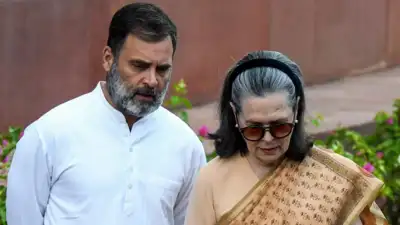New Delhi- A Delhi court has reserved its decision on whether to take cognisance of the Enforcement Directorate’s (ED) prosecution complaint in the high-stakes National Herald money laundering case. The case names several senior Congress figures, including Sonia Gandhi, Rahul Gandhi, Sam Pitroda, Suman Dubey, and others, accusing them under the Prevention of Money Laundering Act (PMLA).
After extensive arguments from both the ED and legal representatives of the accused, Special Judge Vishal Gogne of the Rouse Avenue Courts scheduled July 29 for the pronouncement of his order.
Representing the ED, Additional Solicitor General S.V. Raju alleged that the company Young Indian Pvt. Ltd., in which Sonia and Rahul Gandhi are principal shareholders, was created as a shell entity to gain control over the assets of Associated Journals Limited (AJL), the publisher of the now-defunct National Herald newspaper. The ED claims these assets, worth around Rs2,000 crore, were taken over through a payment of just Rs50 lakh.
Raju argued that Young Indian had no real business activity and functioned merely as a front for the Gandhi family’s interests. According to the prosecution, fraudulent transactions were made over the years in AJL’s name, with forged rent receipts and manipulated financial dealings, all orchestrated by senior Congress leaders. The ED accuses the Congress leadership of converting a public trust into private property under the guise of corporate transactions.
In response, senior advocate Abhishek Manu Singhvi, appearing for Sonia Gandhi, dismissed the allegations as bizarre and without merit, emphasizing that no real money or assets were exchanged to support claims of money laundering. Representing Rahul Gandhi, senior advocate R.S. Cheema argued that the National Herald had always functioned as a non-commercial, non-profit institution and that the Congress party’s intent was to revive the legacy newspaper, not exploit its resources.
Rahul Gandhi maintained that the All India Congress Committee’s involvement was purely to bring back a publication with deep historical roots and that political motives were being read into what was essentially a restoration effort.
The roots of the case date back to 2012, when BJP leader Subramanian Swamy filed a complaint alleging that Congress leaders had illegally acquired the assets of AJL by dishonest means.
Now, with the court set to deliver its order later this month, the political and legal implications of the case continue to stir national interest, as it involves some of the most influential figures in Indian politics.






